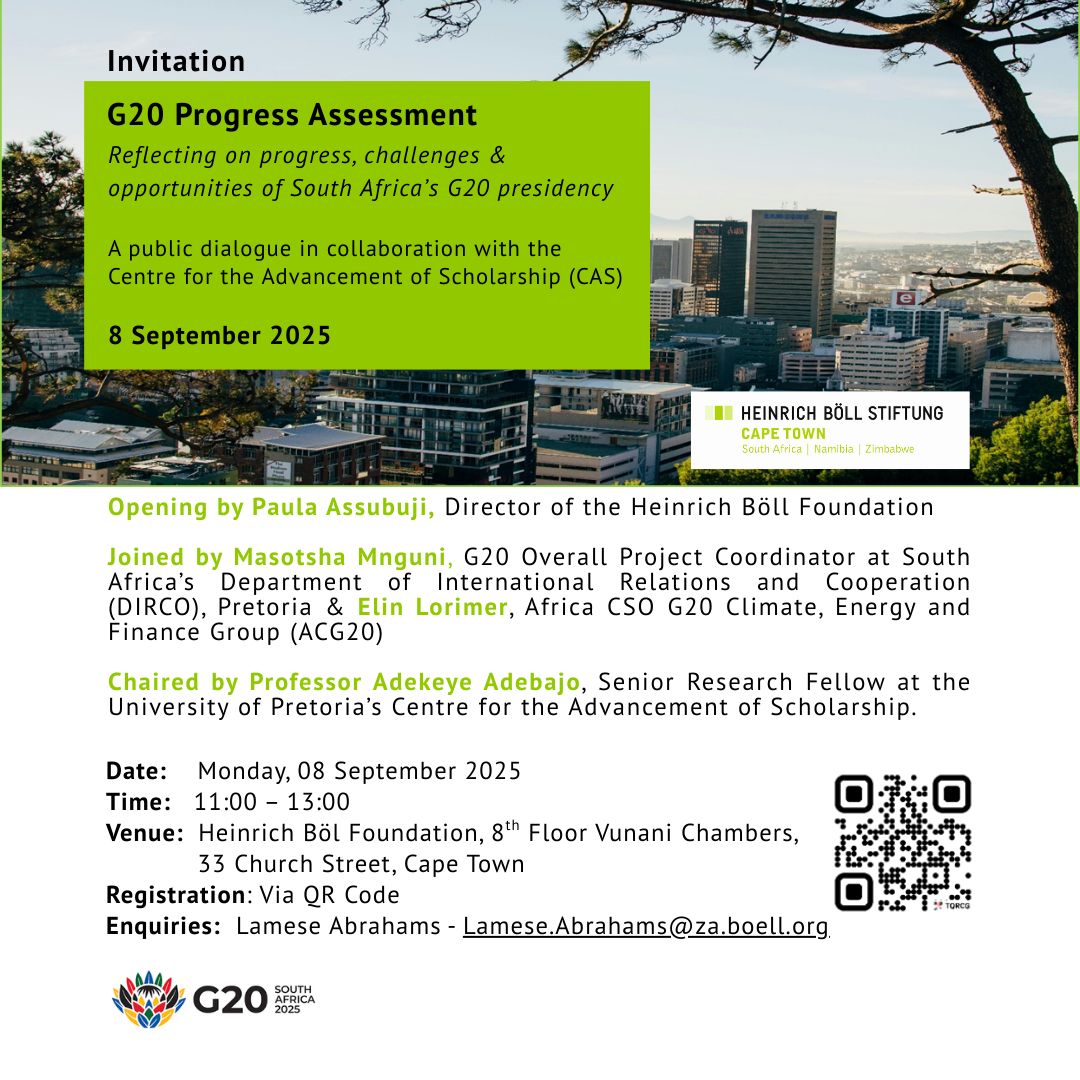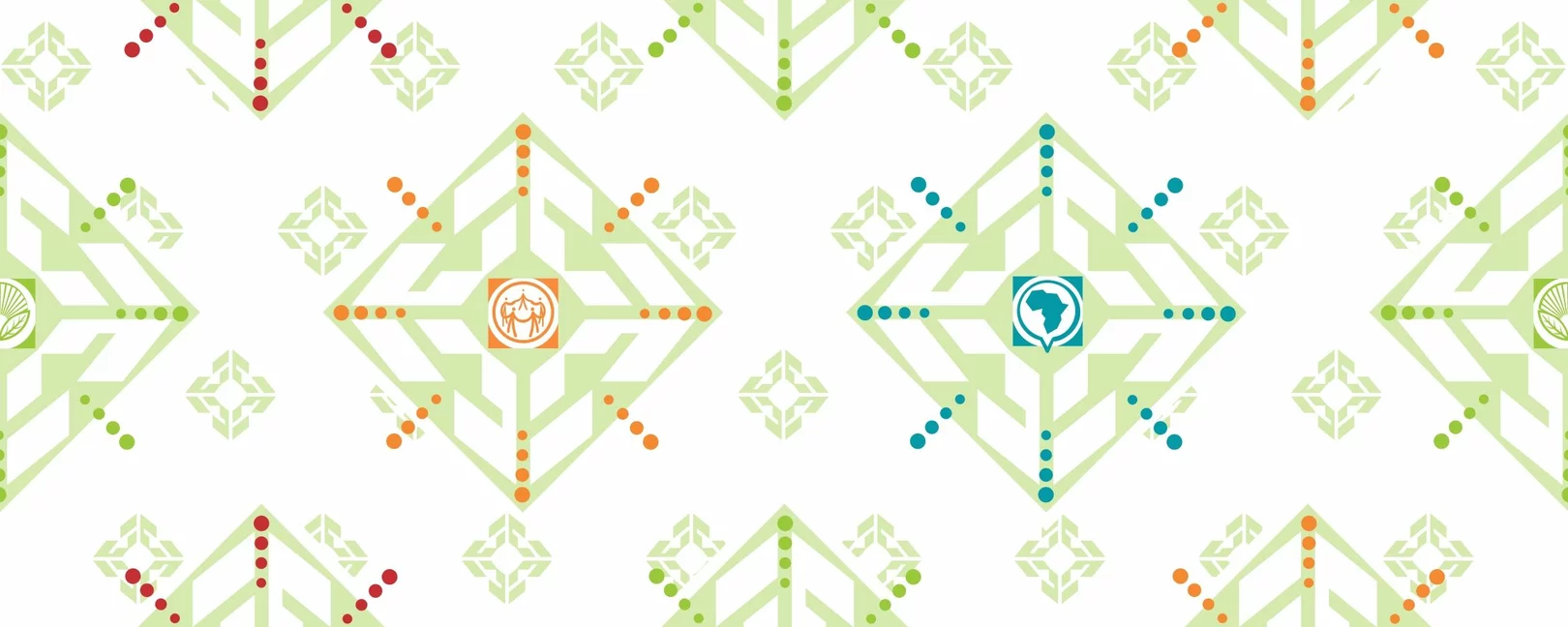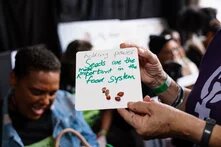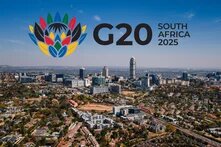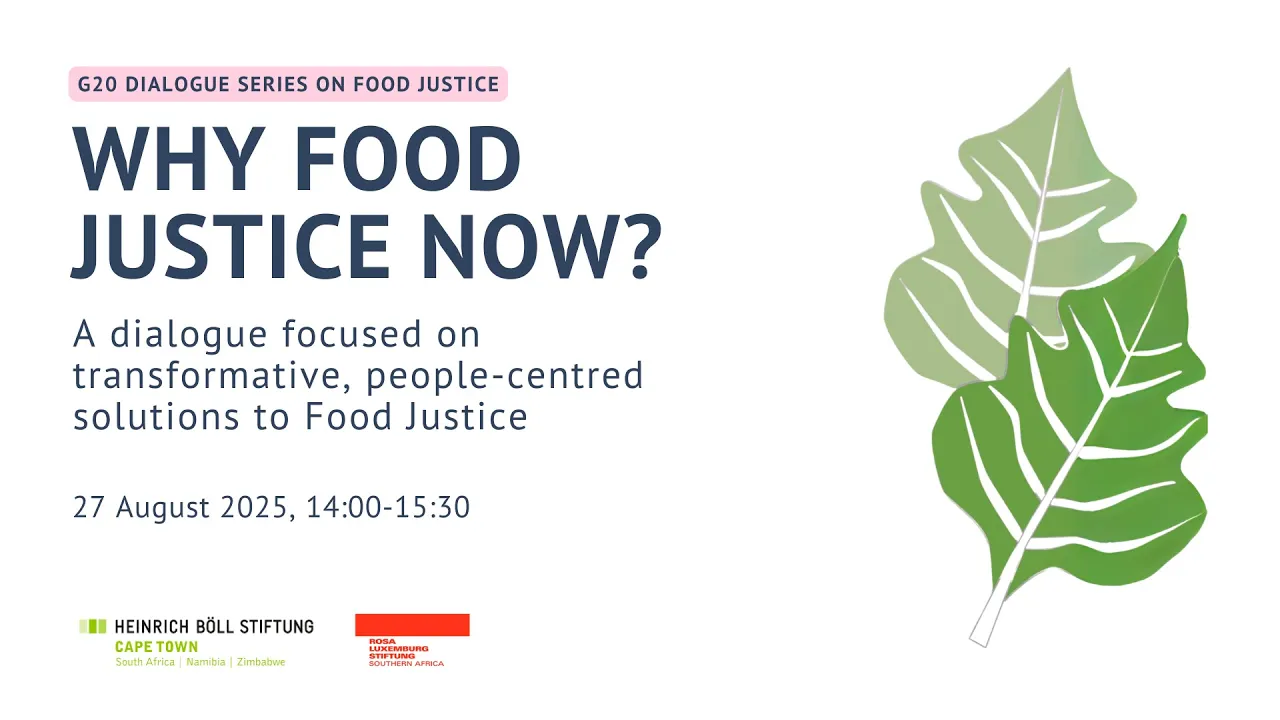South Africa's G20: A Platform for Civil Society Voices
In December 2024, South Africa assumed the G20 Presidency — the first time for the African continent. This milestone offers a rare chance to shape global economic, climate, and social agendas from an African and Global South perspective. Civil society, grassroots movements, and policy advocates are working to turn political pledges into concrete, people-centred policies that put those most affected by inequality at the centre.
From Local Struggles to Global Platforms
From August to December 2025, HBF Cape Town will collaborate with partners to co-curate a series of interventions exploring the intersections between local struggles and global priorities.
The work will focus of the following topical issues:
- Food Justice
- Ecological Justice & the Just Transition
- Gender justice, Inequality, and Democracy
- Housing, Land & Climate Justice
- Mid-Term Review of the G20 Presidency
Through a mix of public dialogues, workshops, and publications, the project will connect community-based experiences to global policy debates. Beginning with a deep dive into food justice, the series will highlight how everyday realities of inequality, climate change, and access to resources are directly tied to international decisions.
Alongside these events, media articles and publications will amplify civil society voices, broaden public understanding, and ensure that perspectives from the ground are made visible to those shaping policy at the national, regional, and global levels.
By creating spaces for exchange, dialogue, and collective action, civil society and community voices are strengthened ensuring that they are not on the margins but at the centre of decision-making.
G20 South Africa
In collaboration with Celeste Fortuin and Kailash Bhana, Feminist Futures is a political intervention that examines the erosion of South Africa’s gender justice agenda 30 years into democracy amid deepening inequality, poverty, GBV, and democratic decline.
Rooted in feminist organising and lived experience, it seeks to reclaim political space, rebuild feminist infrastructure, and leverage global policy moments—including South Africa’s 2025 G20 Presidency, Beijing+30, and the AU’s Agenda 2063—to reinsert structural gender justice into national and international debates.
The intervention includes an intergenerational online dialogue on the 10th of December 2025 and a discussion paper that will bring feminist analysis and demands into global discussions on wealth inequality, the care economy, social protection, and democratic erosion.
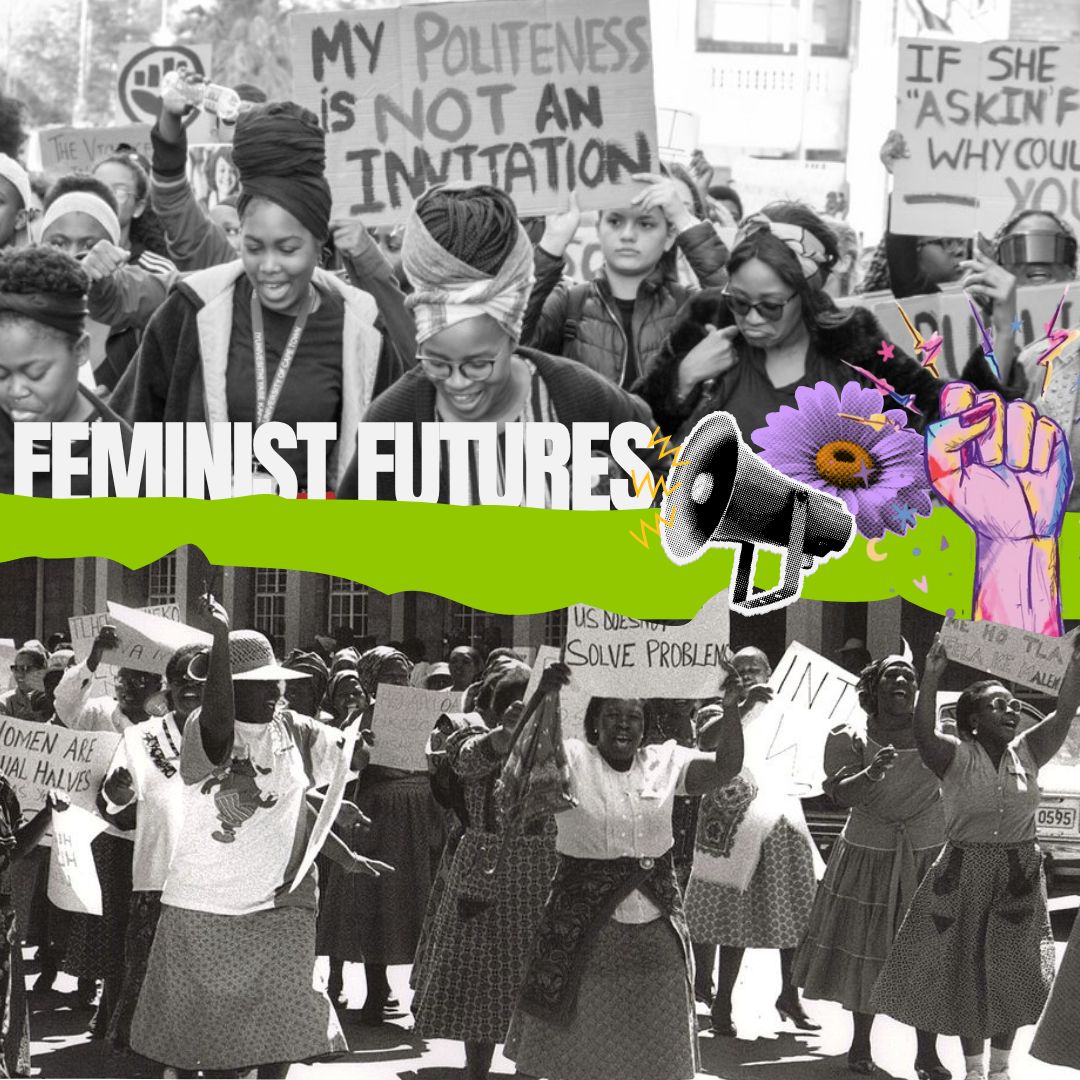
G20 People's Summit
Listening to the Seeds
20 November 2025
An interactive, creative experience exploring the links between food, memory, and movement-building. Participants will engage with the wisdom of seeds through a creative exercise and collectively build a Community Quilt Wall — a living artwork of solidarity and ecological wisdom.
Event partners
- Heinrich Böll Stiftung Cape Town (HBF)
- The Africa CSO G20 Climate, Energy & Sustainable Finance Network (ACG20)
- Association for Rural Advancement (AFRA)
- Indigo development & change (link)
- Southern African Faith Communities’ Environment Institute (SAFCEI)
- Trust for Community Outreach & Education (TCOE)
- Women on Farms (WFP)
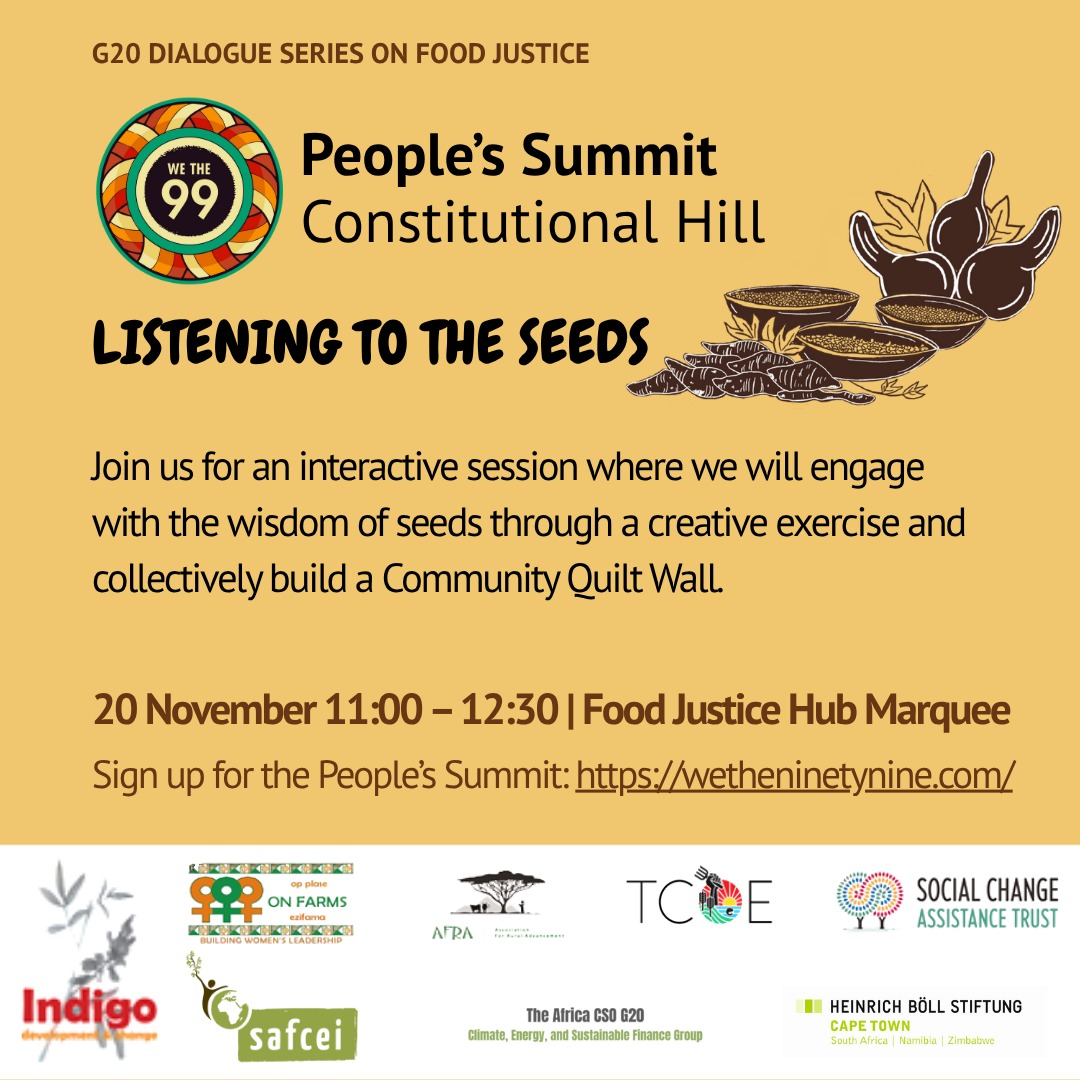
Stories in the Soil: Local Wisdom for a Changing Climate
A participatory session draws on storytelling to centre the lived experiences of small-scale farmers, fishers, and farm workers—those most directly affected by climate change. Through short community videos, story circles, and collective dialogue, participants will explore how local wisdom and practice can inform global food and climate policy and strengthen pathways toward just and resilient food systems.
Event partners:
- Heinrich Böll Stiftung Cape Town (HBF)
- The Africa CSO G20 Climate, Energy & Sustainable Finance Network (ACG20)
- Association for Rural Advancement (AFRA)
- Indigo development & change (link)
- Southern African Faith Communities’ Environment Institute (SAFCEI)
- Trust for Community Outreach & Education (TCOE)
- Women on Farms (WFP)
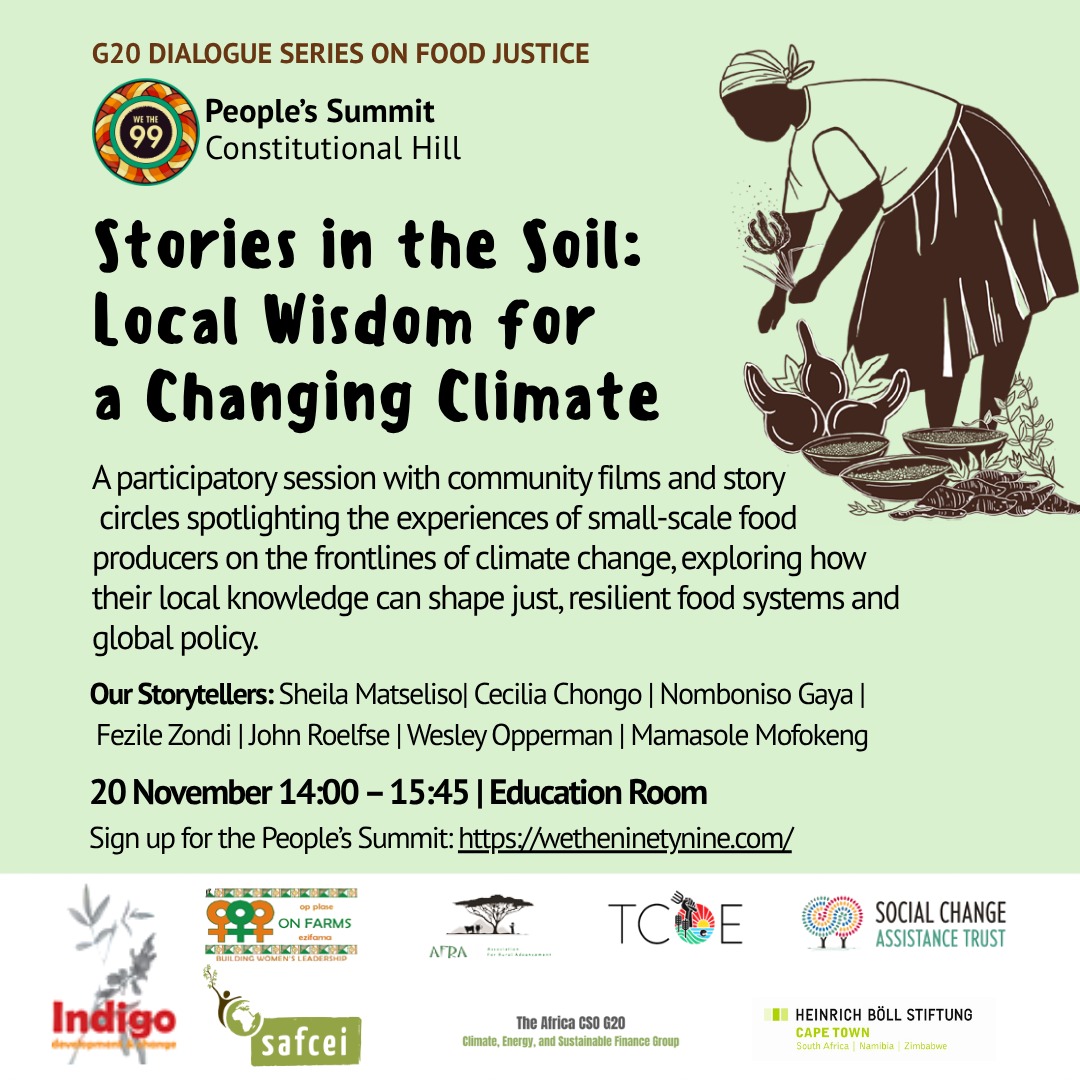
As G20 President, South Africa has placed food security at the top of its agenda, creating a rare opportunity for transformative, rights-based solutions.
This opening dialogue was hosted in collaboration with the Rosa Luxemburg Foundation and explored the urgency of centring food justice in South Africa’s G20 presidency, structural causes of hunger and poverty, and concrete pathways to advance food sovereignty, economic justice, and climate resilience.
Our sincere thanks again to our speakers:
- Olivier de Schutter – UN Special Rapporteur on Extreme Poverty and Human Rights, Co-chair of IPES-Food
- Raj Patel – Writer, activist, academic, filmmaker, and member of IPES-Food
- Phelisa Mashiyi – Programme Director, Callas Foundation
- Nangamso Ka NomaHlubi Koza – Development strategist
Related Materials & Resources:
- Fuel to Fork
- Counter-hegemony & Poly Crisis
- With Pots & Pens to Parliament
- Buffer Stocks against Inflation
This dialogue was hosted in partnership with the Rosa Luxemburg Foundation (RLF) and the Institute for Economic Justice (IEJ). It served as a launch for the buffer stocks policy brief Staple food price trends in South Africa: A case for buffer stocks?, co-authored by the IEJ and the RLF. The brief examines how publicly-managed food buffer stocks in South Africa could:
- Stabilise prices and protect consumers from volatility.
- Strengthen household food security and by increasing the food system’s resilience to climate change and supply shocks.
- Support smallholder farmers and more diversified production, especially of indigenous grains.
- Link national food security to regional and global cooperation, contributing to a SADC-wide buffer stock system and aligning with broader initiatives such as the African Union’s CAADP and the G20 food security agenda.
The launch brought together civil society, researchers, and policymakers to discuss the design and implementation of buffer stocks in South Africa, exploring how they could enhance food system resilience, nutritional diversity, and climate adaptation, while creating a foundation for regional cooperation on food price stability.
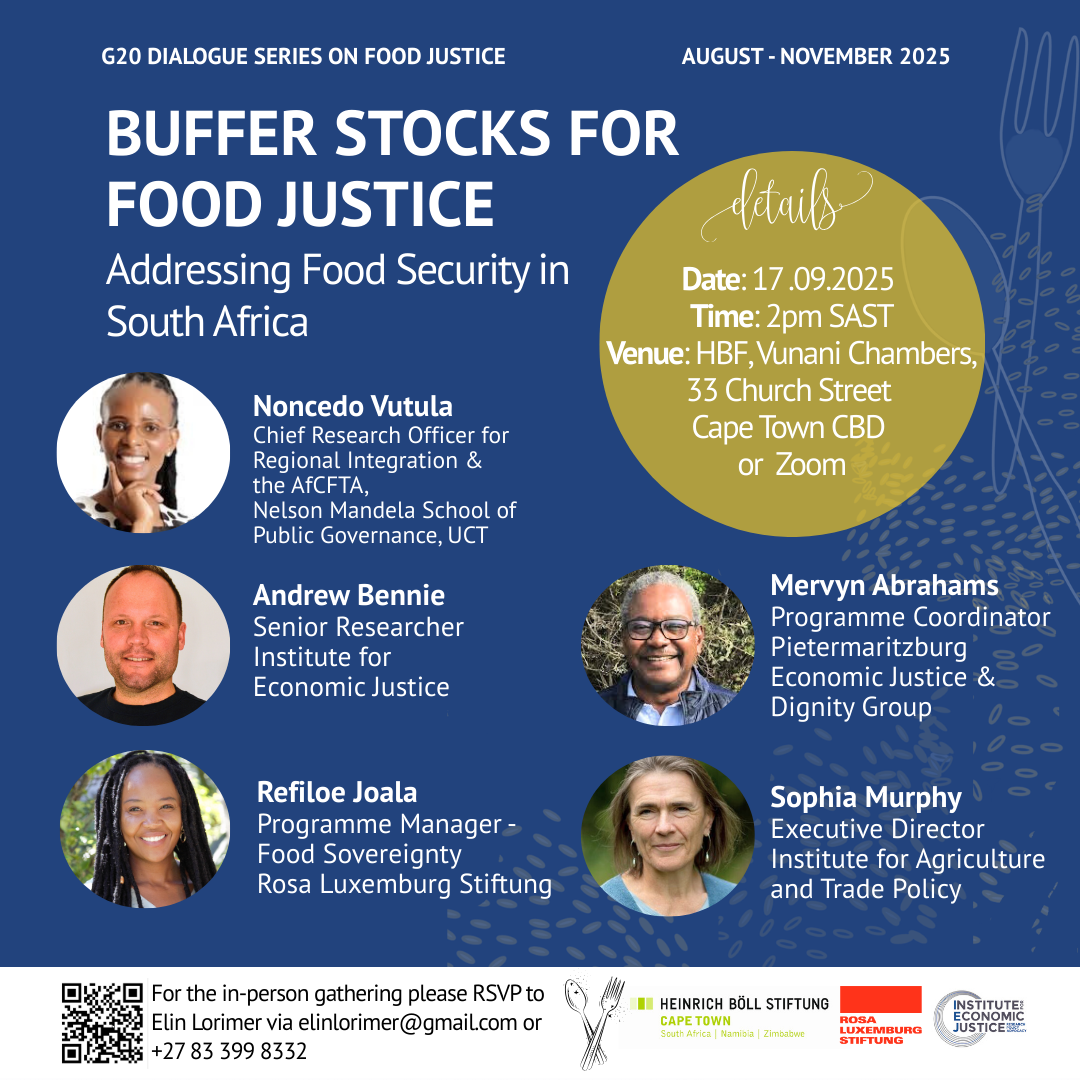
This preparatory session will support and strengthen civil society engagement in the upcoming Brazil–Italy–South Africa Trilateral Round Table on Food Security, which will bring together:
- Policymakers
- Civil society organisations
- Farmer networks
- Other key stakeholders from Brazil, Italy, and South Africa
The Round Table will focus on progress and challenges in implementing recent international food security efforts under the G7 and G20 and in preparation for COP30 in Brazil.
This meeting will help participants prepare and coordinate key messages, and provide opportunity for civil society input.The session will raise awareness of key food security initiatives, exploring how they can be leveraged in future advocacy, campaigning, and programme work.
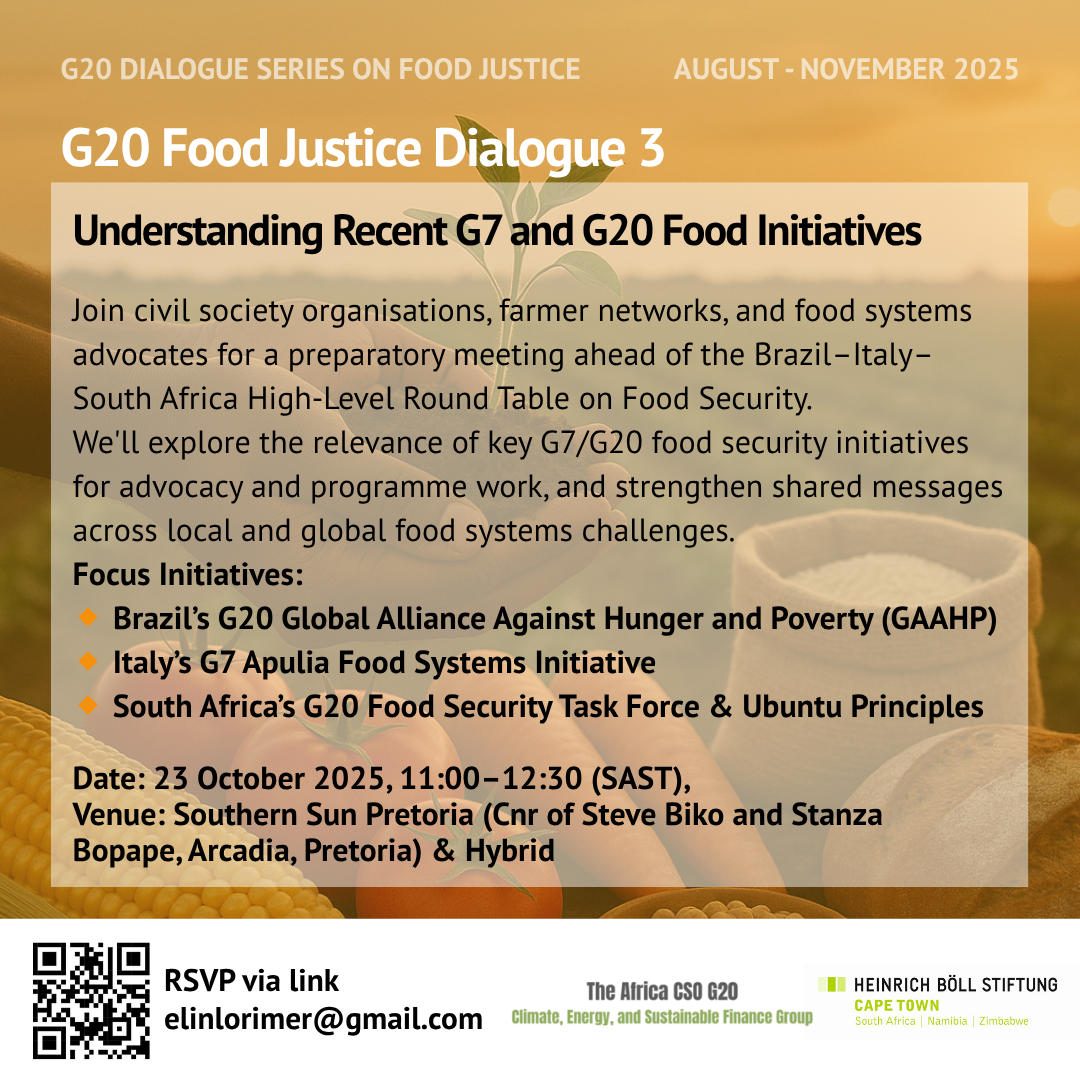
This conference is co-organised by the Heinrich Böll Stiftung (HBS), CNV International, COSATU and ActionAid.
The two-day dialogue will explore how the governance of Critical Energy Transition Minerals (CETMs) can be aligned with just transition principles to ensure that the move toward green economies benefits people, communities, and the environment across the Global South.
Discussions will examine how CETM value chains can:
- Promote inclusive and sustainable economic development in resource-rich regions.
- Ensure environmentally responsible mining practices aligned with national and regional sustainability goals.
- Address trade imbalances and power asymmetries in global mineral governance.
- Advance labour and community participation in shaping equitable mineral policies.
- Contribute to regional cooperation and global frameworks that support fair mineral trade and just transition outcomes.
The conference will bring together policy experts, civil society organisations, labour leaders, researchers, and international partners to deepen understanding of Africa’s strategic role in the global energy transition.
The expected outcome of the meeting is the development of a Draft People’s Charter on Critical Transition Minerals, articulating shared principles and policy directives that place people, planet, and justice at the centre of mineral value chains, advancing a fair and inclusive transition for the Global South.

Join HBF & the Centre for the Advancement of Scholarship for a conversation on South Africa’s G20 Presidency — reflecting on progress, challenges, and opportunities as we look ahead to the G20 Leaders’ Summit in November.
